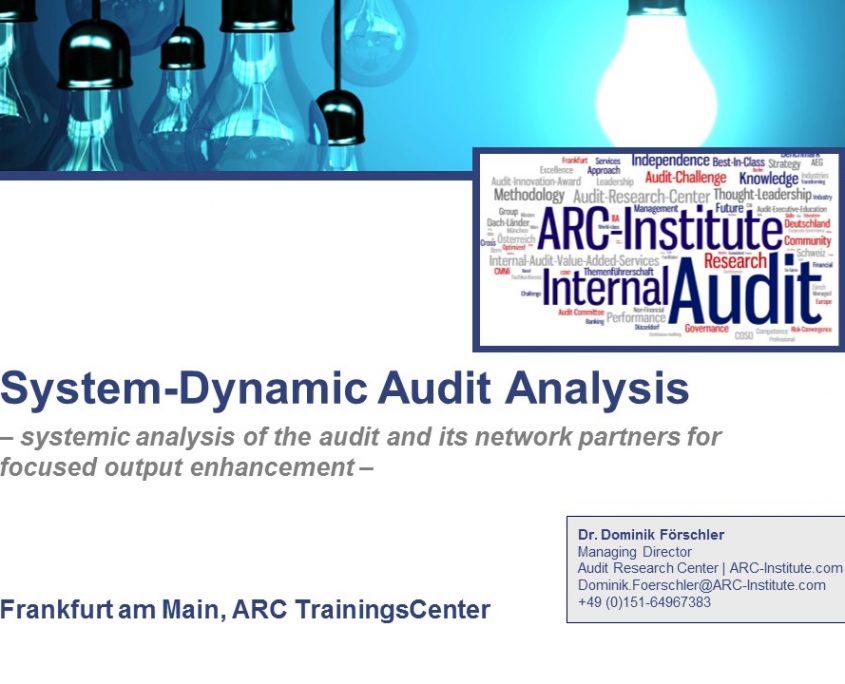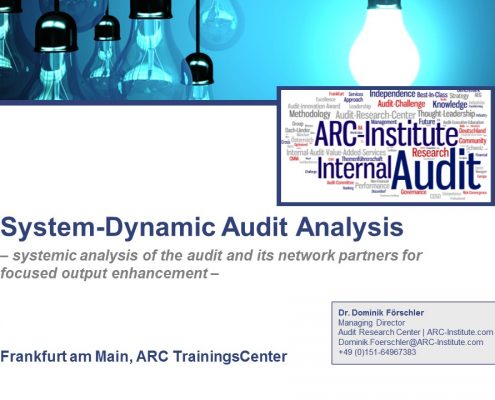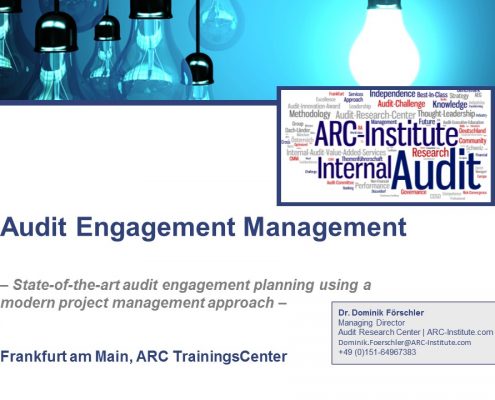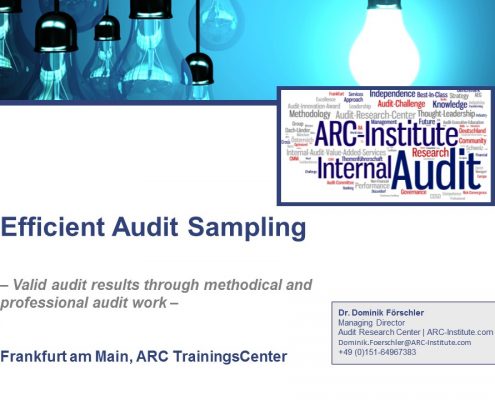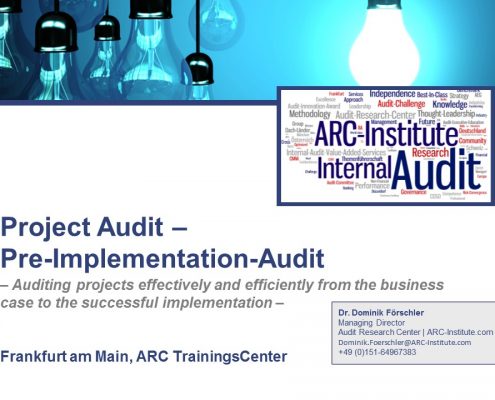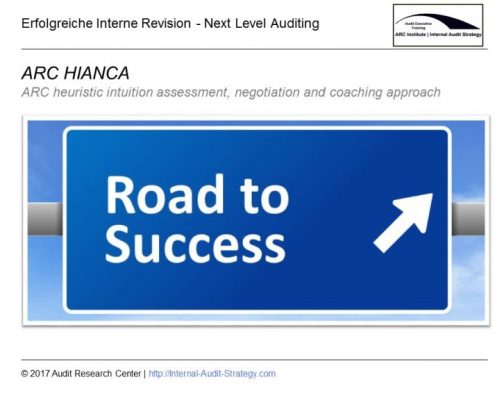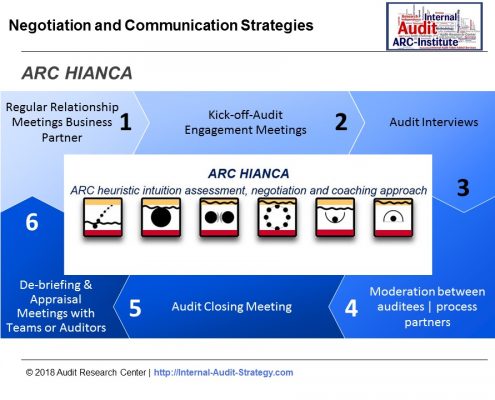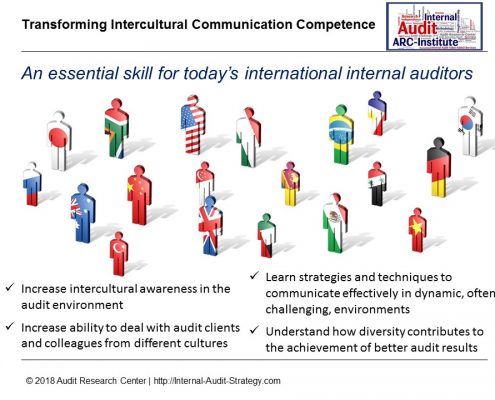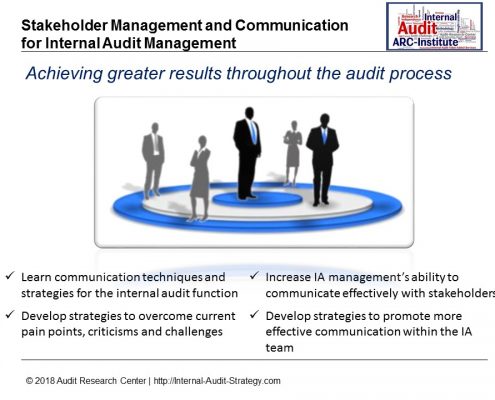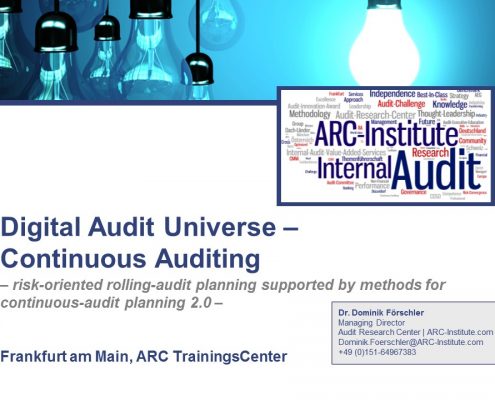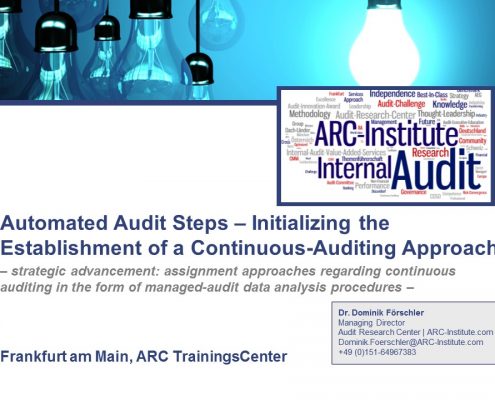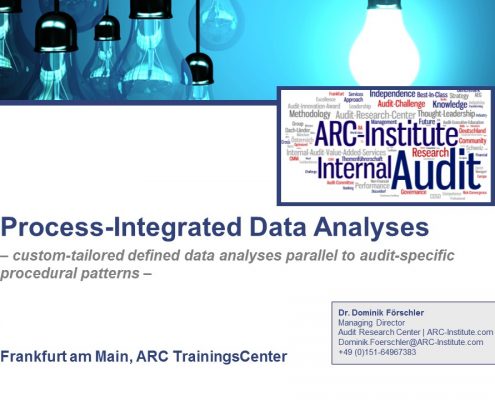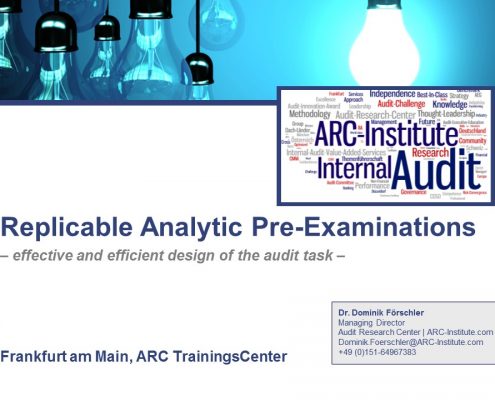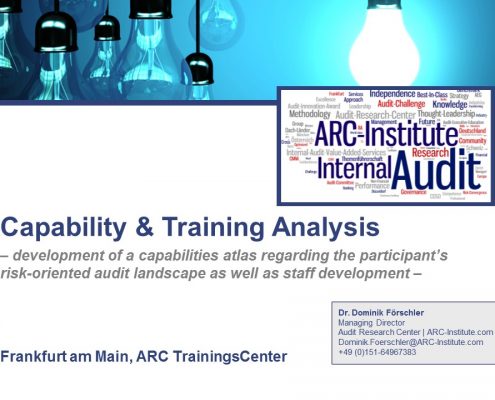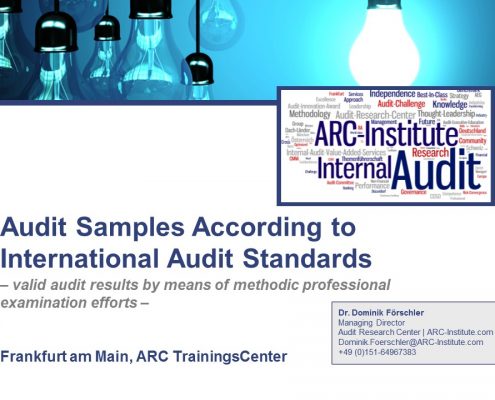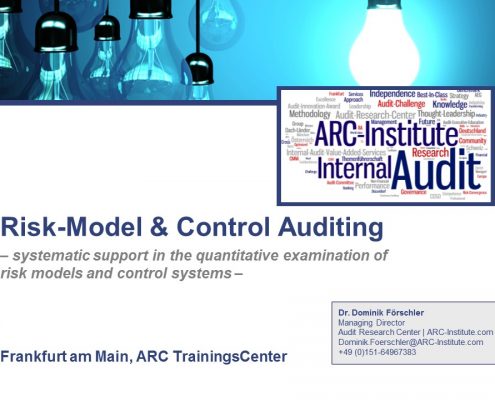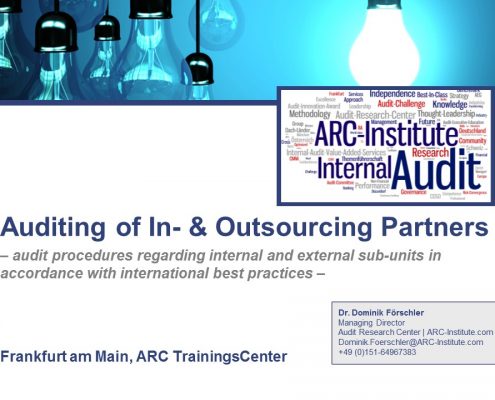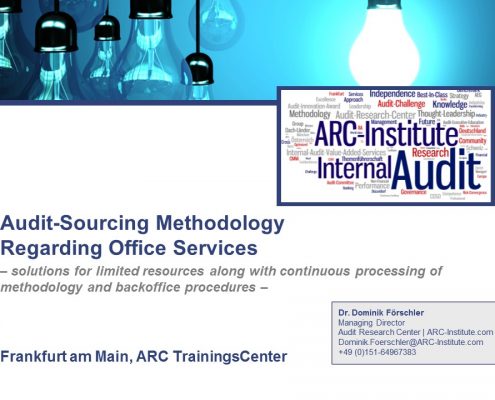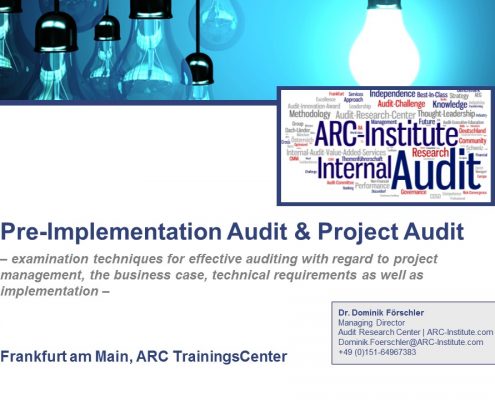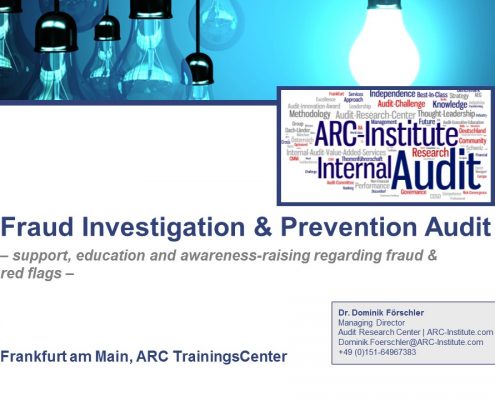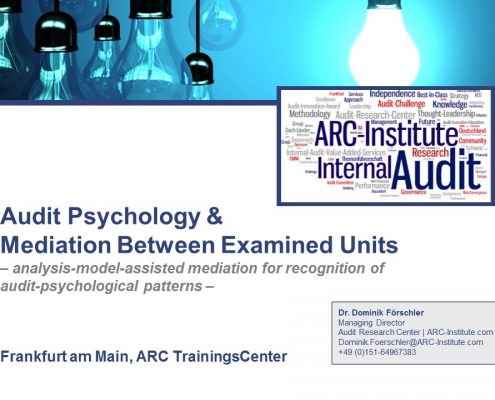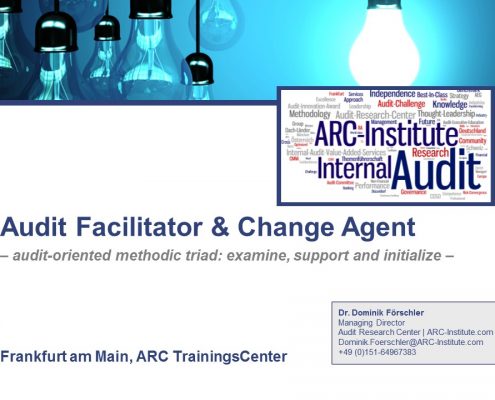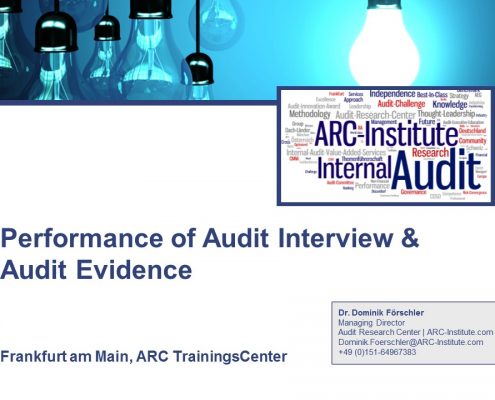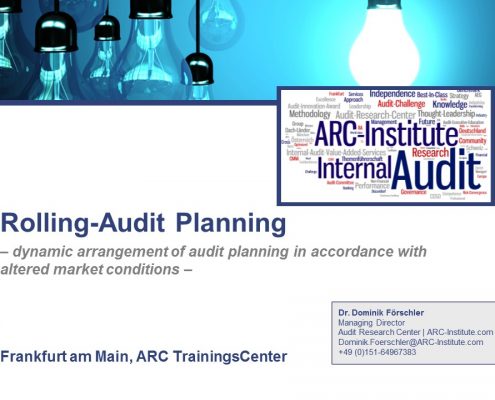System-Dynamic Audit Analysis
– systemic analysis of the audit and its network partners for focused output enhancement –
Objective:
ARC employs the tools of systemic analysis and the so-called system-dynamics structuring method in order to clarify the various corporate-policy and socio-economic effects on the auditing task within a company. Furthermore, these tools are utilized to better understanding both existing and future reaction patterns.
The concept of system dynamics (SD) was developed by Jay W. Forrester, a pioneer US-American computer engineer, systems scientist and professor at the Massachusetts Institute of Technology. Dealing with the simulation of interactions between objects in dynamic systems, SD serves to assist company leadership in the management of complex corporate developments and in the decision-making process. Furthermore, SD facilitates a comprehensive representation and analysis of complex causal structures. Only thus is the impact of individual decisions illustrated clearly with respect to its scope of consequences and also justifiable from a long-term perspective.
The “system-dynamic audit analysis” methodology developed by ARC serves the analysis of complex and dynamic corporate systems in the form of a strategic early intelligence. This is achieved particularly from the prevailing risk-convergence perspectives of various administrative departments. ARC employs the four typical constituent elements of dynamic socio-economic systems in order to clarify the interconnections of networks and make them more understandable. These elements include causal feedback relationships, delayed impact, inventory variables and nonlinearities.
Interaction with ARC’s audit-reference model enables management-level staff to ascertain, scrutinize and systematically advance the development of its own subjective models regarding dynamic systems. “System-dynamic audit analysis” methodology can be employed as a qualitative and quantitative explanatory model. In most cases, qualitative modeling is sufficient in order to analyze clear effects of closed cause-and-effect chains within the respective corporate network.
This particular consultancy module often enables course participants to clarify unsolved audit-implementation problems from the past as well as suspected corporate patterns and to find solutions for the future.
Topics:
- Systemic analytic approaches and their benefit for the internal audit function
- Risk convergence within the framework of independent management services
- Processing of empiric cases and their pitfalls from a network perspective
- Analysis of the respective corporate status quo
- The structure of cause-and-effect chains based on individual audit examinations, their audit results as well as selected audit procedures – from perspectives of SD
- Visualization and modeling of the company-specific network situation
- Simulation of various audit decisions and their consequences
- Integration of “system-dynamic audit analysis” methodology within the everyday audit environment
Management Trainer
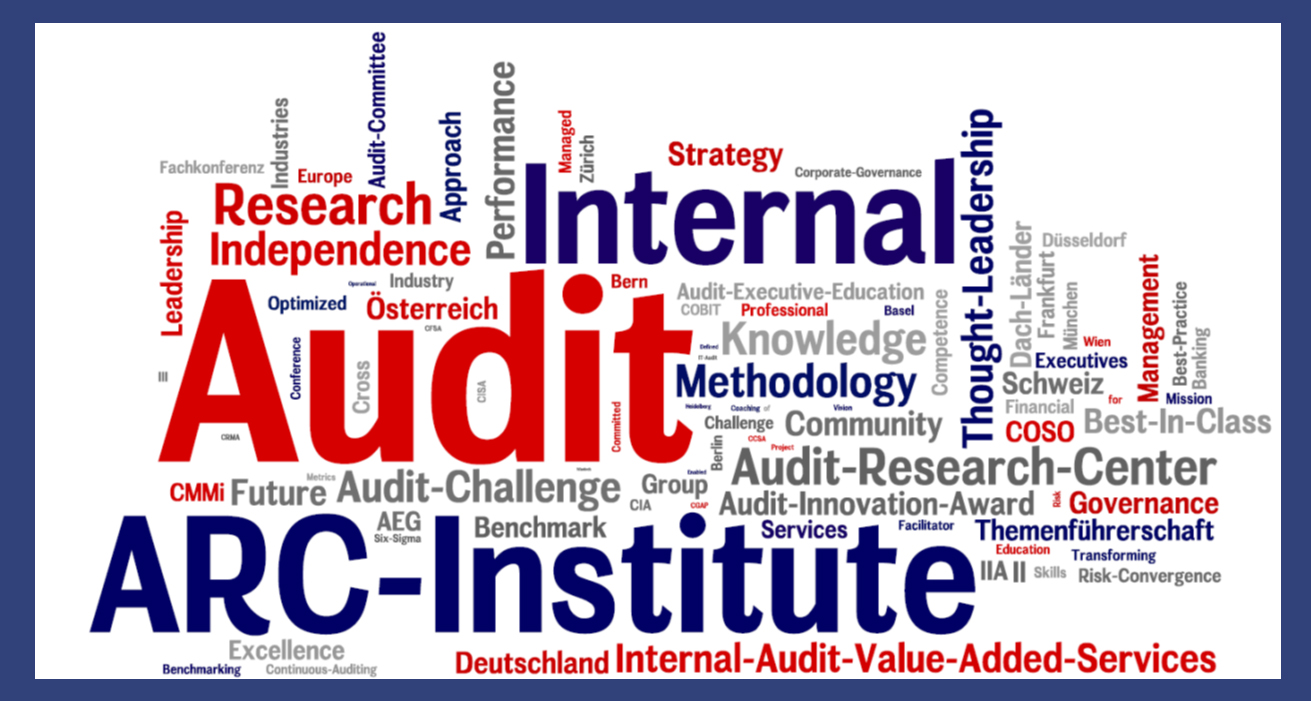
About the ARC Institute
With the Audit Research Center, the ARC Institute provides important impulses for the further development of the audit industry. The focus is on networking science and practice. The focus is on further and new development in cooperation with auditors, companies and associations in order to maintain practical relevance and to develop methods, tools and concepts that can be implemented. The results developed in dialogue with industry experts serve as a guideline and adaptation options in practice today, in order to increase the overall benefit of the company in the long term and sustainably with innovative auditing work.
In the spirit of thought leadership, the ARC Institute and the Audit Research Center stand for topic leadership and forward thinking in the area of internal auditing.
Currently, the ARC Institute supports not only leading supranational institutions in the context of research, consulting and personnel development projects, but also numerous listed companies in the three German-speaking countries of Germany, Austria and Switzerland.
Terms of participation and price
Each open training day is 890,- Euro plus VAT when booking the modules individually. Inhouse training conditions are based on individual pricing and travel expenses. After receipt of your registration you will receive a confirmation of registration with invoice. Please pay the registration fee directly after receiving the invoice. The registration fee does not include 19 % VAT. The price includes participation in the lectures of the booked event, lunch, coffee breaks and seminar documents.
At a glance
Target audience:
Employees and managerial staff from the internal audit function
Methodology:
Interactive presentation, discussion, group projects, practical exercises, case studies, retrospective summary
Training / Training / Consulting period:
Bookings are based on an audit-situation analysis as well as a personal preliminary meeting (workshops generally cover 2-3 days of instruction, audit performance/support determined by circumstances).
Contact:
Would you like more details about ARC’s Audit Training & Consulting Services, or do you wish to book an appointment with its team? Please address your e-mail inquiry to Info@ARC-Institute.com or phone us at +49-2159-6945-904
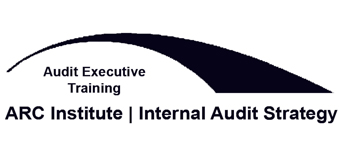
 ARC Institute Profile: Managing Director | Senior Equity Partner
ARC Institute Profile: Managing Director | Senior Equity Partner Tracie Marquardt
Tracie Marquardt ARC Institute Profile: Senior Engagement Manager
ARC Institute Profile: Senior Engagement Manager